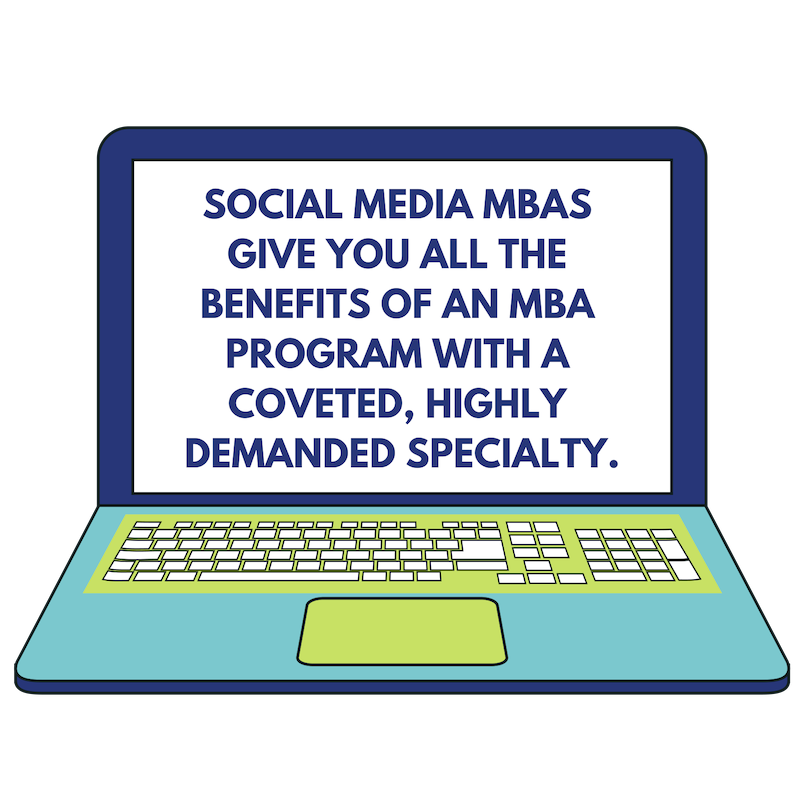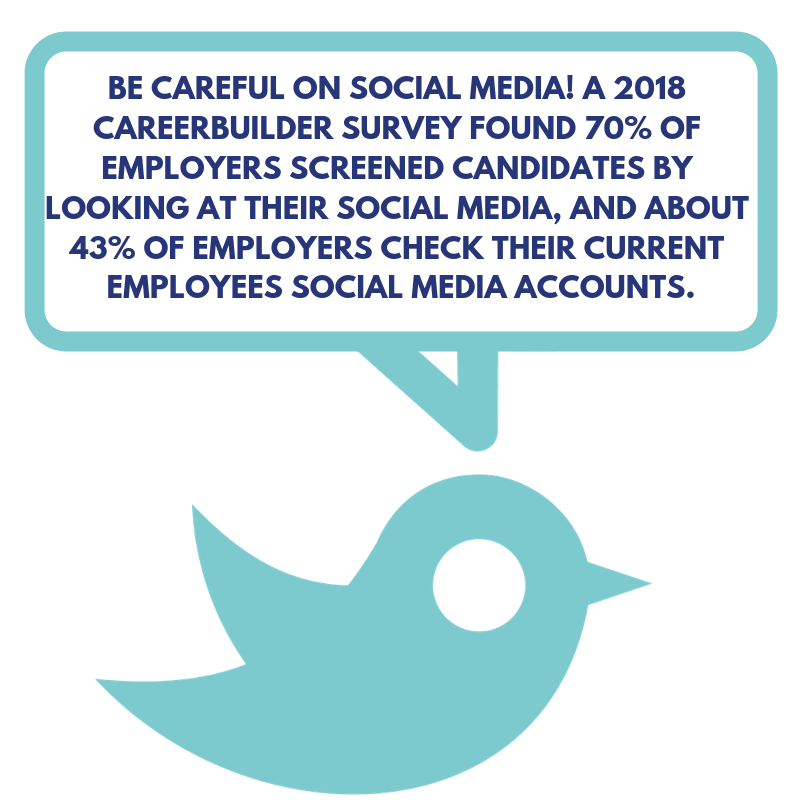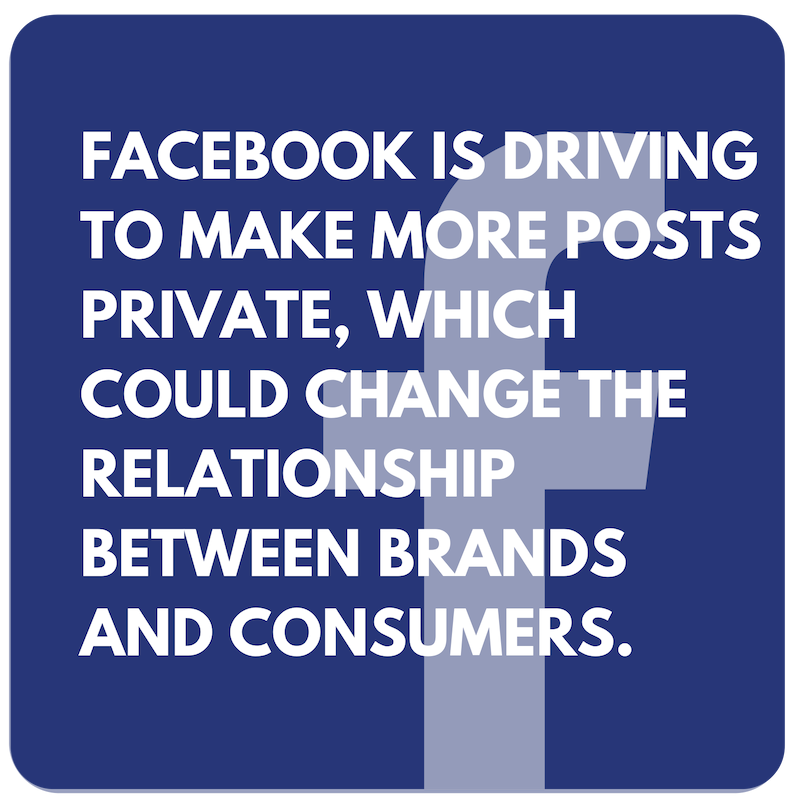Social media is not a media. The key is to listen, engage, and build relationships – David Alston, Entrepreneur
![]()
In the past decade, social media has grown from the domain of children on a few fledgling startups to change how people communicate and experience reality drastically. It’s also become instrumental to branding and commerce, with organizations worldwide scrambling to create a social media presence, track its efficacy, and recalibrate it to accomplish organizational goals.
Social media presents an incredible opportunity to build and target captive audiences of hundreds, thousands, millions, or billions of people with very low overhead, especially compared to traditional advertising and marketing. Brands use platforms like Facebook, Twitter, Instagram (and many others) to find, reach, interact with, and satisfy customers in ways they’d never been able to previously.
The rush to expertly brand has produced mixed results. For every social media success story (think of the meteoric rise of Fortnite or Fashion Nova) there are a dozen junk food companies competing to brand themselves as the quirkiest and most depressed in their niche. This manufactured cosplay of mental illness on social media has been met with extreme derision, and is indicative of a central problem in social media marketing and business: how does a brand create relatable, engaging content that builds revenue while maintaining some authenticity. If people can engage with free content that doesn’t push them towards specific products and services, why would they choose to consume content that urges them to buy things they might not want? How can brands best create content that speaks to people and gets them to purchase products and services they wouldn’t have otherwise?

When you think of social media marketing, you might picture an ad from a brand masquerading as something more organic, but there are other players in this business. While many people who work in social media work on behalf of one company, the social media economy has also produced businesses like Social Flow, which help organizations publish their content at the most advantageous times, using intricate metrics to calculate when branded messages or content will have their furthest reach on specific platforms. Social Flow is just one example of the peripheral services that have popped up to help organizations and brands improve their presence on social media. So where do you fit in?
You can become an invaluable asset to many organizations’ social media presence by earning a Social Media MBA.
In a Social Media MBA program, you’ll work to answer these questions and many like them through research, trial and error, technical skills (like the use of analytics, algorithms, and “Big Data”), and mold their findings into approaches intricate marketing campaigns that match and meet organizational goals and identities.
Social media professionals also:
- Anticipate their audiences desires and needs, and meet them where they’re already active on various platforms.
- Develop a brand identity that’s consistent with organizational identity and goals.
- Build desire and interest where it didn’t previously exist using their wits, various media formats, and whatever they have at their disposal.
- Work to keep costs low while producing optimum results.
- Make sure their content doesn’t contradict or embarrass the organizations they work for.
- Create, manage, and curate written and visual content, then track and analyze its results.
- Find leads, sales, and get inbound traffic through their efforts.
- And so much more.
What is a Social Media MBA?
A Social Media MBA combines the business curriculum of an MBA program with the psychology, social sciences, research, marketing, analysis, and liberal arts skills (among other areas) that define corporate (and other organizations’) social media presences. These are newer degree programs, which means there’s less of them, fewer graduates of them, and they’re animated by professionals in the field using the latest information and real-world examples of social media business efforts.

These are primarily MBA programs that delve into how social media impacts business, which means you’ll begin with standard MBA courses, studying topics like:
- Business ethics
- Accounting
- Finance
- Supply chains
- Business laws
- Human resources
- Economics
- And much more.
This study lays the groundwork from which you can explore the advent, prevalence, strategies, and techniques needed to be successful in business using social media. You’ll learn to solve common problems companies face daily, lead peers, employees, and supervisors towards collaboration and cooperation, learn to create and improve internal corporate communications and focus on the most effective ways to reach and serve your clients. You’ll also learn to identify and build larger audiences through public relations, social media strategy, while maintaining organizational standards, ethics, and so much more.
In the social media specific part of your curriculum you’ll likely study:
- Social Media Marketing Strategy
- Social Media Marketing Campaigns
- Digital Strategy and Planning
- Digital Marketing Analytics
- Social Media Communication
- Mobile Marketing
- Sustainable Leadership in Media
- Among other options.
Let’s explore how to refine your hunt for a Social Media MBA:
What to Consider When Searching for a Social Media MBA
- What’s the furthest degree level you’ve reached? You’ll likely need a Bachelor’s degree to enter a Social Media MBA program.
- What’s your career experience? How has it prepared and inspired you to study and work in social media?
- If you have communications or sales experience (among other specializations) that can help you in choosing prospective MBA programs.
- How much can you afford in tuition for your Social Media MBA and how much would you have to borrow to pay for one? Carefully scrutinize loan options and interest rates. It’s always better to take out public over private loans, and best to select a school you can afford whenever possible.
- Depending on your current employment status, your employer might (at least partially) sponsor the costs of your Social Media MBA.
- How much time can you commit to a Social Media MBA daily, weekly, and overall before you graduate from it?
- The delivery format you choose is extremely defining for your Social Media MBA experience. Do you want a full-time program, part-time, traditional on-campus programs, online programs, or a combination of both traditional, in-person, and online study?
- What job or career track do you want? Are there specific businesses you’d like to work for? How do different MBA’s in Social Media position you towards these preferences?
- What are your career goals for the next five years? How would a Social Media MBA help you reach them?
- Where would you like to live and work during and after earning your MBA?
- Do you want a program that requires a dissertation? Some of the available programs do, while others don’t.

These are but a few of the options you should consider while looking for a Social Media MBA. Let’s look at some other MBA options:
Social Media MBAs Vs Related Degrees
Many degrees are related to Social Media MBAs. Common ones include:
- Master of Science in Communications
- Human Resources MBA
- Marketing MBA
- Communications MBA
- And many more.
So why should you take a Social Media MBA instead of one of these other degrees?
MBA degrees were some of the first degrees to be offered through online, distance, and flexible, part-time formats. This way students can get their MBA education on a schedule that works within their ongoing life and work responsibilities. It’s much easier to keep up with the demands on your time through an online or part-time MBA program than in a traditional, on-campus degree program.
MBAs are universally understood and respected degrees in America and much of the West. Employers throughout the business world desire MBA graduates because they know what they’ve been trained to do. Because of this, some employers are willing to help cover MBA tuition for their workers so they can become more productive in their duties, and perhaps move on to take on more responsibilities (think raises and new job titles). Earning an MBA can lead to promotions at your current work, as well as also many new career opportunities throughout the business world.
MBA’s are versatile programs that build skills and understanding in many aspects of business. Learning about social media is one thing, but how it’s integrated into a business, and all the factors that a company is dealing with is another. With a greater understanding of how businesses function you’ll be much better at your job, and more efficient at communicating with supervisors and coworkers to get the resources and approval you’ll need to be successful as a social media professional.

Of course, social media MBA programs aren’t just about business. They’re also there to give you in-depth information and experience about how to run a social media effort for maximum value and ROI. Social media is a very specific aspect of a business that is related to communications, advertising, public relations, and marketing but is firmly its own beast. If you want to work in social media getting industry-specific training will set you apart from other people trying to enter the field with lesser or different credentials.
Now that you’ve explored why an MBA in Social Media will separate you from your competition, let’s examine what we’ve done to help you in your search for an MBA in Social Media, or another MBA degree:
How Can We Help You Get a Social Media MBA?
At MBACentral we work to make sure you can find best business degree for you by ranking schools on a number of metrics, including affordability (measured by graduate debt), support services (flexibility through online classes, and other accessibility and support tools offered to students regardless of delivery format), and quality classes (average class size and faculty credentials), among other factors. We also produce many resources including our feature writing and answer common questions about MBA degrees with FAQ hubs like this one. Here is some of the content we’ve created that you’ll likely find helpful:
Specifically on Social Media MBA’s:
- What is a Social Media MBA? And Why Do I Need One?
- The 8 Best Online Social Media MBA Degree Programs
Other top content on MBA’s, including those related to communications and marketing, among other disciplines:
- Online MBA Rankings
- The Top 20 Online Human Resources MBA Degree Programs
- The 15 Best Online Communications MBA Degree Programs for 2019
- The 50 Easiest Online MBA Degree Programs
- The 50 Fastest Accelerated MBA Degree Programs
- The 30 Fastest Online MBA Degree Programs Ranking for 2019
- The 30 Best Online MBA Degree Programs – Ranking for 2019
- What Can I Do With a Marketing MBA?
- The 20 Best Online Business Analytics MBA Degree Programs
- https://www.mbacentral.org/top/online-phds-in-leadership-degree-programs/

We frequently update our content and create new resources, so check back in with us whenever you can so we can help you better understand graduate business degrees and choose the right one for you. If you see a school or program that seems like a good fit, it’s always useful to reach out to the support staff at that school directly to get more information about their program, as well as assistance in your application process.
Can You Get a Social Media MBA Online?
The short answer is yes, yes you can. Earning a degree online has become more viable each year since the Internet’s global emergence. MBA degrees are particularly known for their online and part-time options. They were among the first degree disciplines to let students take night classes, weekend classes, and distance education programs before the Internet, and expanded their offerings once it took hold. This history means schools have extensive experience offering MBA degrees in non-traditional formats, as well as teaching students with disparate ages and backgrounds. MBA students are often in their late twenties through their fifties and work full-time.
A traditional, on-campus program has its own benefits and drawbacks. When you take an MBA online you’ll:
- Have more options in when and where you’ll study and do work for your courses.
- Save money in comparison to traditional, on-campus program.
- Have options over how many courses you take at once, and how it will take you to complete the program in general.
- Won’t need to relocate or leave your current job to earn your degree.
Some potential cons to choosing an online program include:
- Missing out on spending time in-person with your peers.
- May sacrifice some of the closeness you develop with professors.
- Online programs require more discipline and self-direction than traditional programs.
- May not be able to attend as many networking and other support events than you would in traditional, on-campus programs.
What’s best for someone else might not be optimal for you. Make sure to deeply consider what delivery format will work for you. The one you choose will heavily influence your engagement and success the same way the school you select can. Weighing your options carefully and making an informed choice will pay dividends throughout your MBA program and career.
If you’re definitely interested in an online MBA in Social Media, make sure to check out our ranking of The 8 Best Online Social Media MBA Degree Programs.
If you’re not sure what degree you want, click over to our FAQ section to see all of your MBA options, or head to our rankings page to get more information about many different types of MBA programs.

How Do You Get in to a Social Media MBA Program?
To enter a Social Media MBA program you’ll likely need a Bachelor’s degree. Specific programs have different prerequisites but first you can whittle down your options by only selecting regionally accredited schools (so you can transfer credits if necessary, get federal financial aid, and use your degree to impress current and potential employers).
Decide if you’re sure you want a Social Media MBA, or if you’d prefer a Communications MBA or another degree.
If you’re still set on a Social Media MBA, start exploring the admissions criteria of specific programs. Do they require a certain undergraduate GPA? Do they want you to have years of work experience before applying? Do you need to take the GMAT and have a certain score? What about references, or letters of recommendation? Do you meet these criteria? If not you can help yourself out by talking to support staff at the school you’re interested to find out how you might make up for a specific shortcoming, or how flexible the school is on their prerequisites.
Pay close attention to how much the program will cost you. Can you afford it? What loans would you have to take out? Do you qualify for financial aid? Talk to support staff at the school who deal with finances, and complete the federal financial aid application (FAFSA). You can likely avoid paying the entire sticker price for the degree if you take the proper steps.
If you think you can pull off the financial side of things, and you meet the other criteria to be accepted, start preparing your application. There are many resources online that will help you decide who to get references from, get a higher GMAT score, and give you general information about getting into business school. Talk to anyone you can who’s attended the program, professors that teach in it (if possible), and of course, develop a rapport with support staff professionals at the school to help you throughout the process.
If you know you want to earn an online MBA in Social Media, go to our ranking of The 8 Best Online Social Media MBA Degree Programs
If you’re not sure what degree you want, click over to our FAQ section to see all of your MBA options, or head to our rankings page to get more information about many different types of MBA programs.

What Jobs Can You Get With a Social Media MBA Degree?
As the importance of social media continues to develop there will likely be more variance on the positions available that you’ll qualify for by earning these degrees. But also remember, you’re still earning an MBA degree with a specialty in social media, so you’re still qualified for other jobs that an MBA program prepares you to fill. Some of the most common include:
- Business Executive
- Web content or social media specialist/manager
- Human resources manager
- Public relations manager
- Marketing executive or manager
- Advertising executive or manager
- Media planner or buyer
- Communication specialist or manager
Business executives hold titles like CEO, Senior Vice Presidents, and other top-level positions throughout American and global companies. They work to pilot a company and have important duties depending on their titles and the departments they supervise. Executive income varies greatly, but they can expect to earn over $100,000 a year, and potentially much, much more depending on the organization and industry they work in.
Human resources managers plan, organize, and supervise an organization’s administrative processes. They handle recruiting, interviewing, hiring, work with top executives on high-level organizational planning, and act as a bridge between an organization’s management and its employees. According to the U.S. Bureau of Labor Statistics, in 2017 they earned a median pay $110,120 per year or $52.94 per hour. There were 136,100 of these jobs in 2016, and BLS expects a 9% growth in these roles between 2016-26, which translates to 12,300 new jobs.
Public relations managers (this is also where social medial specialists and managers are grouped in by BLS) plan, create, and supervise the development of all efforts to build and improve the public perception of their employers or organizations. According to BLS, in 2017 they earned a median pay of $111,280 annually or $53.50 per hour. BLS predicted a 10% growth in these roles between 2016-26, which translates to 7,700 new jobs on top of the estimated 73,500 that were working in these roles in 2016.
Advertising, promotions, and marketing managers make the programs, ads, and other promotional materials and campaigns that generate interest in an organization’s products or services. This is increasingly part of a social media professional’s domain. They liaise with art and sales departments to produce their campaigns. BLS found that there were 249,600 of these positions in 2016, and their 2017 median pay was $129,380 annually, and $62.20 per hour. They predicted a 10% growth in these roles between 2016-26, leading to 23,800 new positions.
If you know you want to earn an online MBA in Social Media, go to our ranking of The 8 Best Online Social Media MBA Degree Programs

Further Reading
- Online MBA Rankings
- The Top 20 Online Human Resources MBA Degree Programs
- The 15 Best Online Communications MBA Degree Programs for 2019
- The 50 Easiest Online MBA Degree Programs
- The 50 Fastest Accelerated MBA Degree Programs
- The 30 Fastest Online MBA Degree Programs Ranking for 2019
- The 30 Best Online MBA Degree Programs – Ranking for 2019
- What Can I Do With a Marketing MBA?
- The 20 Best Online Business Analytics MBA Degree Programs
- https://www.mbacentral.org/top/online-phds-in-leadership-degree-programs/